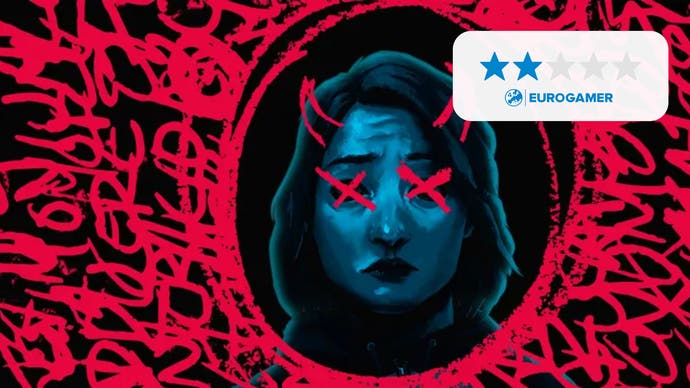The Tartarus Key review - retro horror that doesn't scare easily
Escape gloom.
Horror scenes weaved from the circuits of analog technology, such as VHS tapes, old cameras and FM radios, are often presented as if they weren't meant to be discovered. They're the likes of snuff films and lost-and-found video footage, their brand of gurgled speech and degraded images as unsettling as it is illicit. Then there's the recent surge of PS1 horror games. These can be just as disconcerting, given their cast of characters' uncannily angular faces, distorted environments and cracking textures - almost as if these are bootleg or unreleased games warped by an unknown, malevolent force.
The Tartarus Key wants to conjure the same dreadful eeriness of these games, but without resorting to cheap jump scares. To that effect it's cloaked in the coarse, aliased graphics of a PS1 game, while its story is delivered within a tantalisingly spooky setting and a hefty dose of puzzles to crack. As a gig worker named Alex Young, you have woken up in an excessively baroque mansion, furnished with musky books and dusty furniture, rather than the familiar comforts of home. You spy a radio on a table, a postcard tucked away in the crevices of a sofa, a locked safe, and a door that's jammed shut. Amidst the radio static, a disembodied voice would tell you that they are in the same predicament, and your first step is to find a way out of the room. A security camera watches your every move, its lens fixed on you as you gather scraps and clues, unravel their meaning, and unlock the door.
Only when you do, you'll find yourself in yet another locked room. And another. And another.
Unfortunately, this repetition - and eventually, familiarity - is largely what keeps The Tartarus Key pretty placid, its initially unsettling atmosphere never peaking beyond an unobtrusive level. This is unlike, say, a game like P.T., the demo for a Silent Hill game that never saw the light of day, which simply comprised of a single hallway you pace across over and over again. By gradually introducing small changes to an increasingly familiar loop, P.T. was able to instil a sense of creeping unease, but The Tartarus Key is just one giant escape room game, mostly devoid of the cloying dread of the horror games it takes inspiration from. It wears the PS1 horror aesthetics without delivering on the spooks. This isn't necessarily a fatal flaw, since The Tartarus Key does have some puzzles that serve as engaging brain teasers. But I'm not sure if it's high praise to suggest that a horror game is tantamount to a relaxing puzzle box you can while away your lazy afternoons with.
One of its biggest issues is that the stakes are small in The Tartarus Key. The game maintains more or less the same sequence throughout: find a locked room, discover a keypad, decipher cryptic clues, key in the right code in a keypad, unlock the door, and then walk into another locked room. These puzzle-solving stints are mundane, but to the game's credit, there is still some gratification in working out the answers, with the puzzles straddling the line between being somewhat easy and a tad punishing. You're also able to take your time to scour the scene - there's no malicious being imposing a time limit on your sleuthing - as Alex monologues about how freaky this entire scenario is (which isn't, really). All that's to say that you won't be solving puzzles under duress, but this doesn't quite make for a horrifying experience, either.
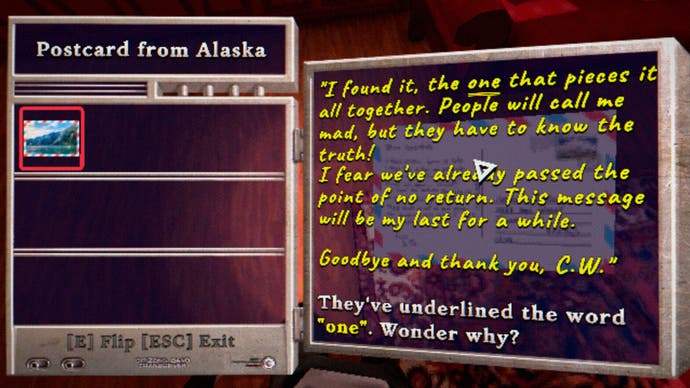
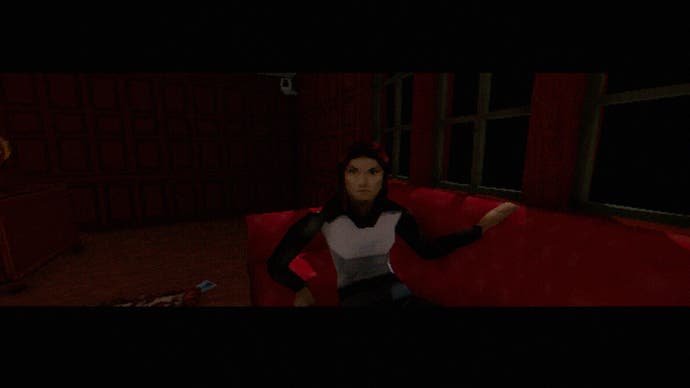
Another issue is that since most of the puzzles are contained within each room, you aren't likely to get stuck just because you forgot to pick up an item from the other end of the mansion. But it's still frustrating at moments since there's no hint system if you do ever get stuck. This can happen if you miss out on a vital clue, which has happened to me a couple of times - like in the game's very first locked room. The penalty for not being able to solve the locked room puzzle is straightforward: you're just stuck in there until you figure something out.
That said, occasionally you'll see some weird stuff happening. A corridor will stretch on endlessly, hinting at the mansion's otherworldly nature. Heavy items will tip over from a shelf with a loud clang behind you. Distorted voices mock and obstruct Alex's conversations with her companion over the radio. But even these events will take place, very predictably, in between locked rooms. Other times, they are presented as cutscenes, with The Tartarus wrangling control away from you only to return it to you mere moments later. Such scenes aren't particularly intimidating, even within the game's labyrinthine halls, hung to excess with classic European-style paintings. There isn't much that would get under your skin - and this is in spite of seeing blood seep out of Francisco Goya's "Saturn Devouring His Son" painting.
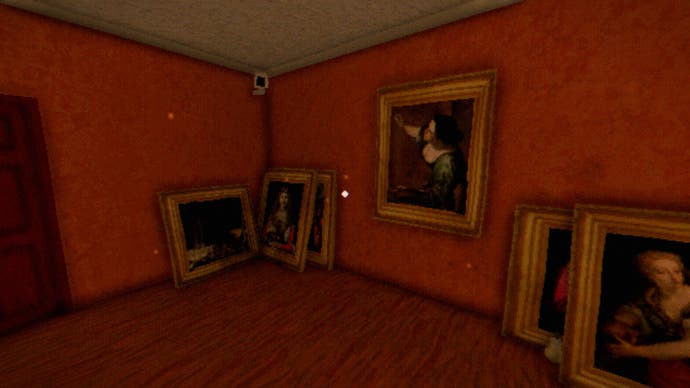
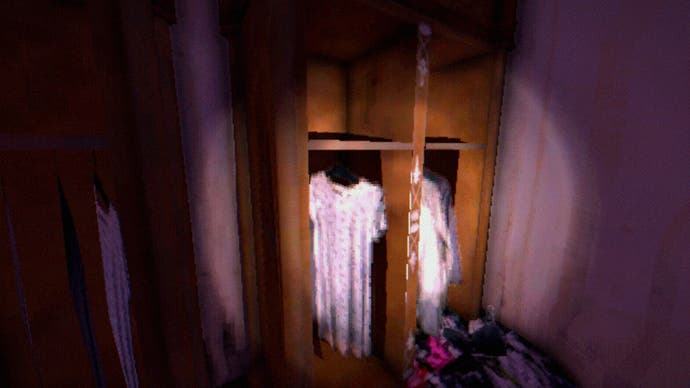
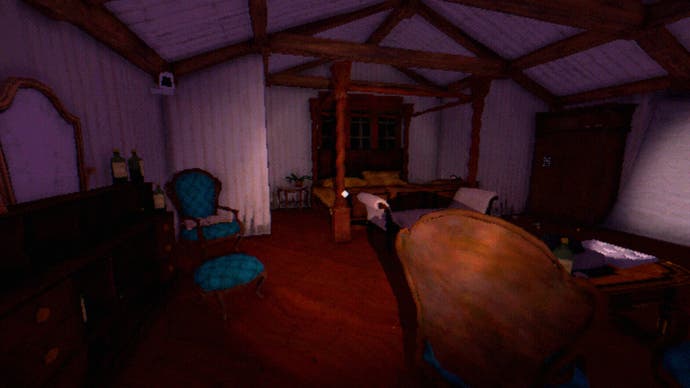
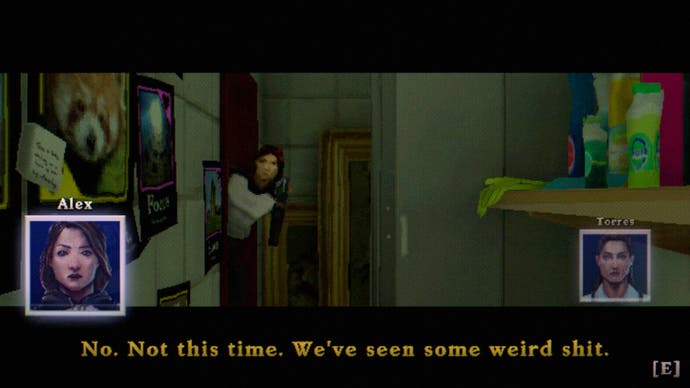
At the same time, these locked rooms are punctuated by a key event, perhaps to emphasise the gravity of your situation. As it turns out, Alex isn't the only one being kidnapped, and every few rooms or so you'll get the opportunity to rescue a fellow captive. Clearly, this is another puzzle to be solved, but with one major difference: getting the solution wrong can result in the captive's demise. It may appear pretty high-stakes for a horror game, but this can be circumvented with some good old fashioned save scumming when realising the answer was wrong (typically with Alex shaking her and yelling "Noooooooo!"). This segment is barely more than just a collect-a-thon of companions, with each of them reduced to simple caricatures: the occult-obsessed historian, the disgraced doctor, the unrepentant rich asshole. There aren't a lot of nuanced interactions with them either, as you'll just be parking them in a safe room after they're rescued.
In the end, there's a sense of artificiality to the horrors of The Tartarus Key, and it's one that the game just couldn't reconcile. Whatever the format, I enjoy horror because I want to experience their scares and thrills behind the safety of the screen. I want that boundary pushed, the screen eliminated - or at least forgotten.
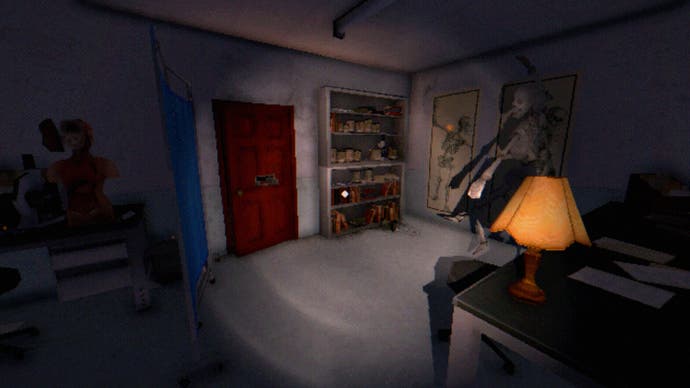
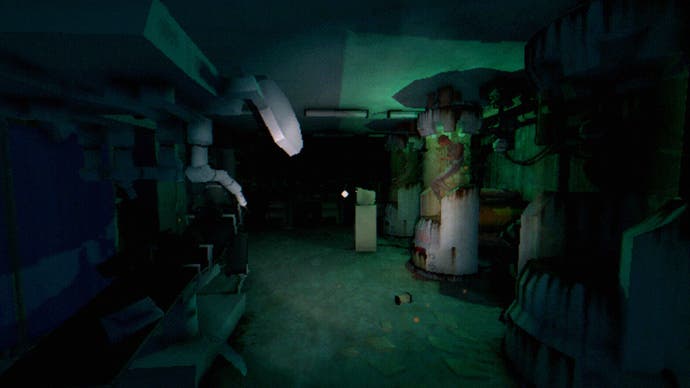
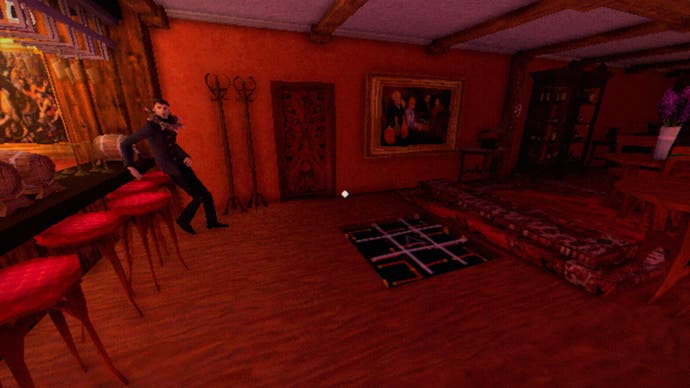
What's curious, however, is that The Tartarus Key feels particularly adamant about telling you that this screen exists. One of the captives, Torres, would frequently point out that the mansion seems unlived in, its furniture are merely set dressing, and the place a perverse playground for the mansion's super rich owners. The rooms' clues would sometimes produce a mise-en-abyme, conjuring a narrative for the puzzle that's divorced from the game's broader tale. For instance, a series of postcards detailing its author's growing paranoia, for example, is dismissed by Torres as just part of the mansion's games, with Alex remarking that the author probably isn't an actual person. A separate conversation with another captive delves into how bad she is at escape room games. There are incessant reminders that you're playing a game within a game; you even chance upon a room for the mansion's puzzle-making department. If you've played a real-life escape room game before, part of you knows that you're not actually in some unimaginable peril, and the game can be stopped any time. Experiencing The Tartarus Key feels just like this, as if the game doesn't want you to be too overwhelmed by its terrors.
Perhaps a more charitable take is that The Tartarus Key is attempting to blur the lines between horror and satire. Perhaps it's revelling in its self-awareness by doling out references to the actual nature of horror games, that they're not that much different from most escape room games anyway. But this doesn't build up any tension or serve any narrative purpose. Towards the game's final levels - or rooms, really - I was more eager to complete the puzzles than pay more attention to its story or scares. The puzzles may be able to scratch an itch for brain teasers. Outside of this, however, I can remember little else about The Tartarus Key other than its rooms, set pieces, and all those darned keypads.
